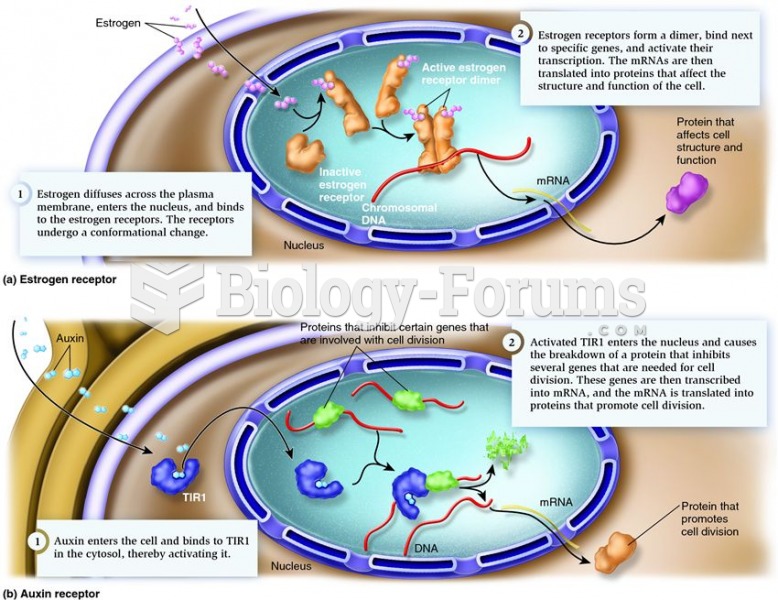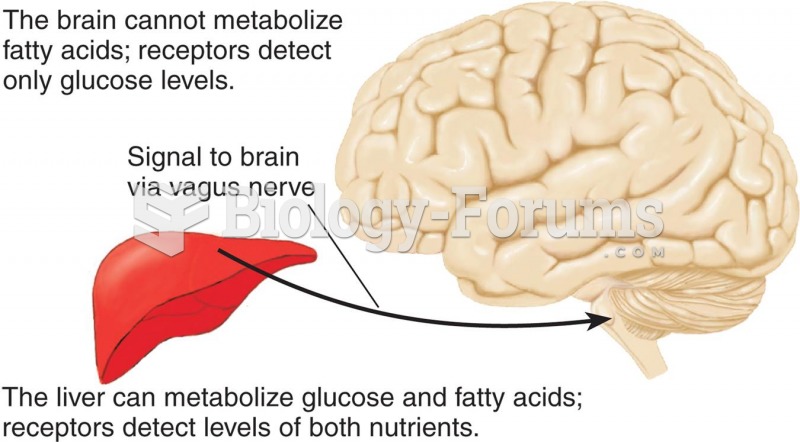|
|
|
The Romans did not use numerals to indicate fractions but instead used words to indicate parts of a whole.
After a vasectomy, it takes about 12 ejaculations to clear out sperm that were already beyond the blocked area.
Signs of depression include feeling sad most of the time for 2 weeks or longer; loss of interest in things normally enjoyed; lack of energy; sleep and appetite disturbances; weight changes; feelings of hopelessness, helplessness, or worthlessness; an inability to make decisions; and thoughts of death and suicide.
Vaccines prevent between 2.5 and 4 million deaths every year.
In inpatient settings, adverse drug events account for an estimated one in three of all hospital adverse events. They affect approximately 2 million hospital stays every year, and prolong hospital stays by between one and five days.







